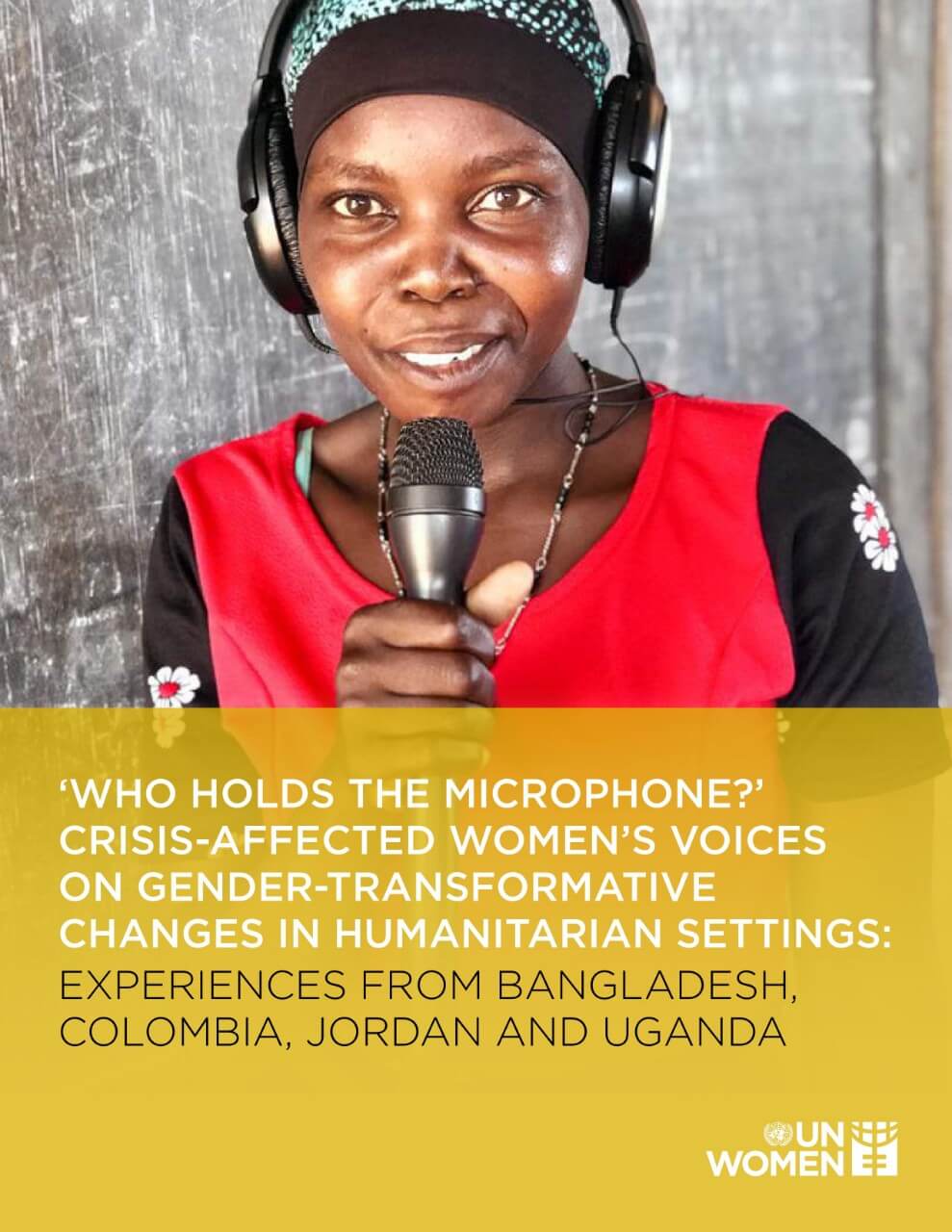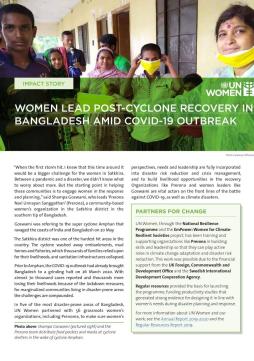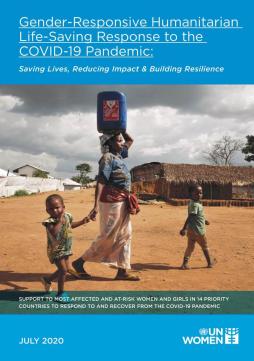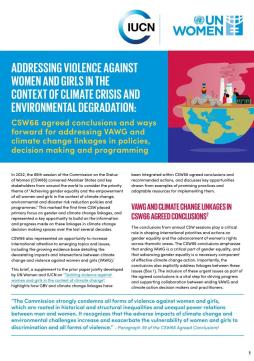‘Who holds the microphone?’ Crisis-affected women’s voices on gender-transformative changes in humanitarian settings: Experiences from Bangladesh, Colombia, Jordan and Uganda
Aiming to contribute to the engendering of humanitarian work around the Grand Bargain’s workstreams on participation and localization, this exploratory and qualitative research study engages with crisis-affected populations in four humanitarian settings in Bangladesh, Colombia, Jordan, and Uganda. The study zooms in on the experiences of diverse groups of affected women but also explores the perspectives of youth, men, humanitarian actors, women’s organizations, women’s self-led groups, and individuals conceived of as “connectors” between affected communities and humanitarian actors.
Using a participatory methodology that includes participatory videos and video clips alongside key informant interviews and focus group discussions, the study looks at experiences of gender-transformative change, effective localization, and meaningful participation for women and girls affected by crisis, and provides entry points and recommendations for Grand Bargain signatories to move towards gender-transformative humanitarian action. Readers can scan QR codes or click on hyperlinks that take them to the video materials where they are able to hear the participants themselves speaking up about their experiences.
The report demonstrates that engaging with diverse women (and women’s organizations) in their own terms, responding to their priorities and adapting to their ways of working constitute key drivers of gender-transformative change. Enhancing meaningful participation and effective localization is not only about what humanitarian responders do, but how they do it. The central argument of this research report is simple: the voices of crisis-affected people, and in particular crisis-affected women, should resonate loudly and clearly in spaces where decisions about their lives are made.









